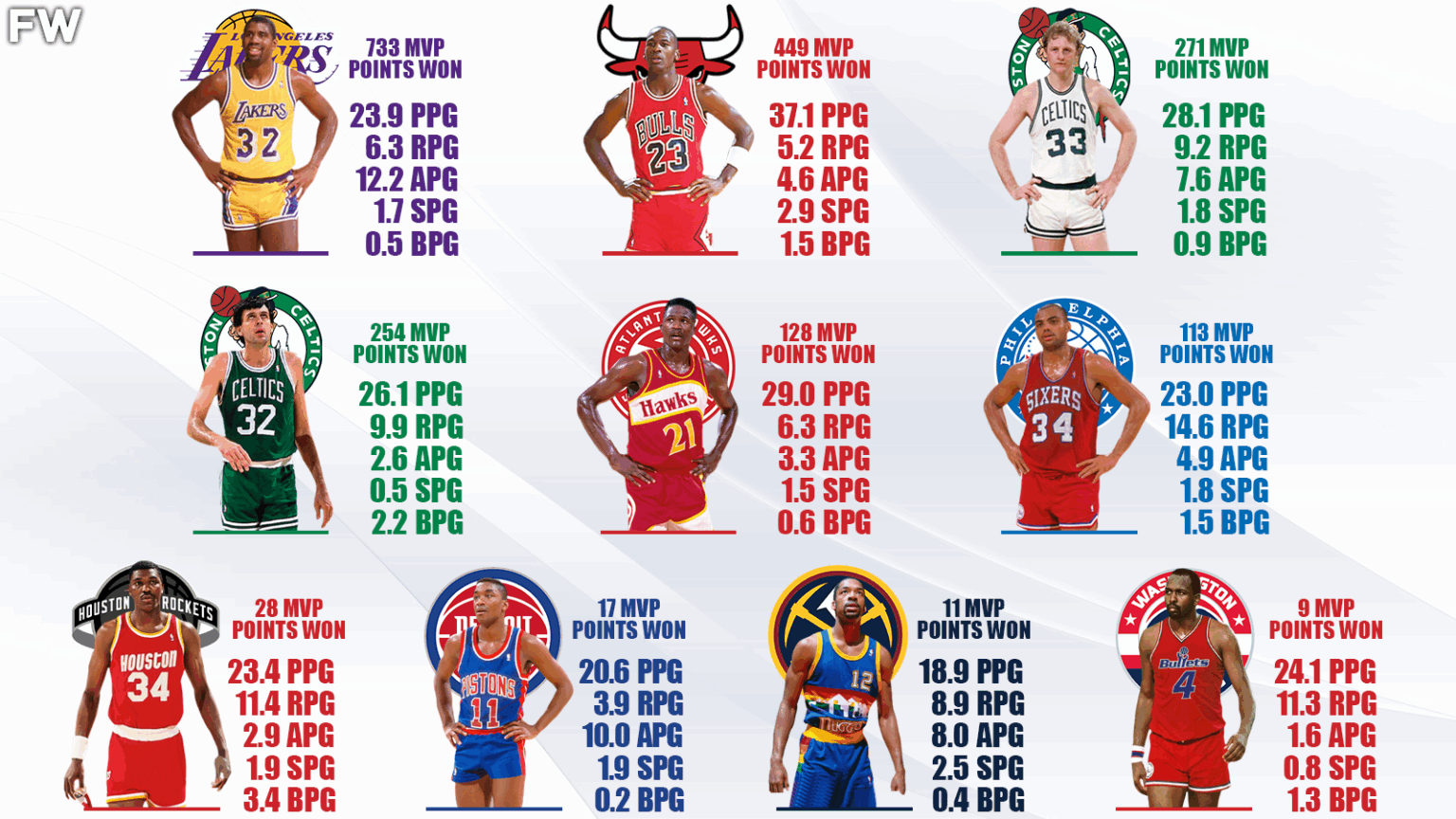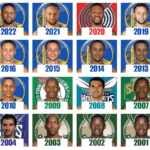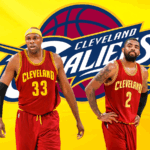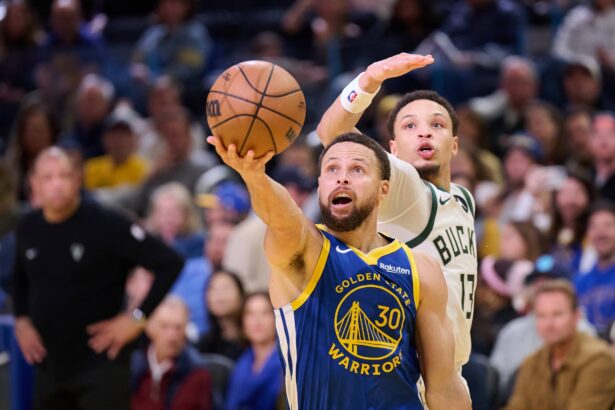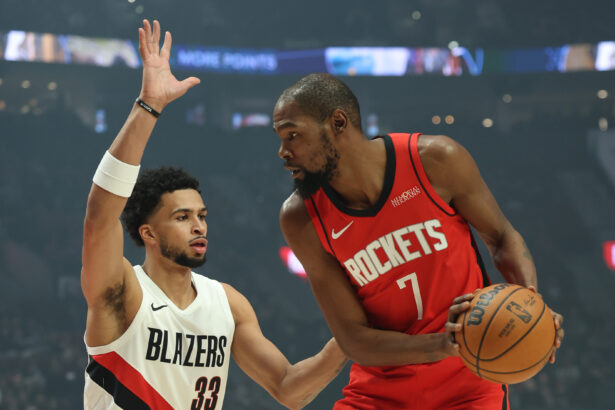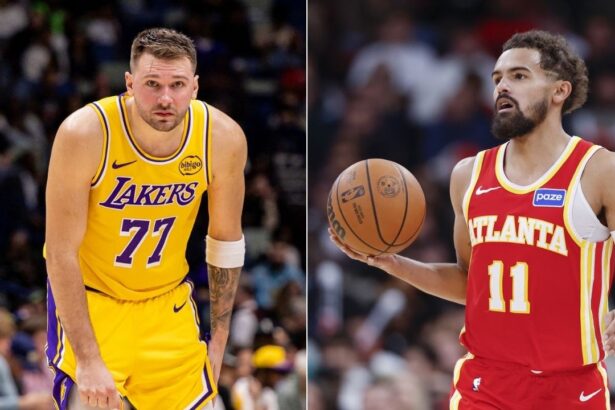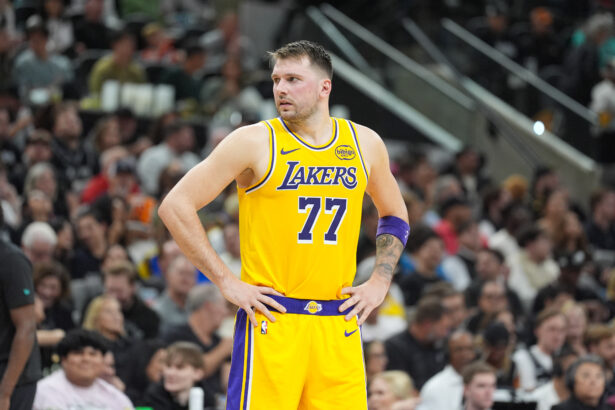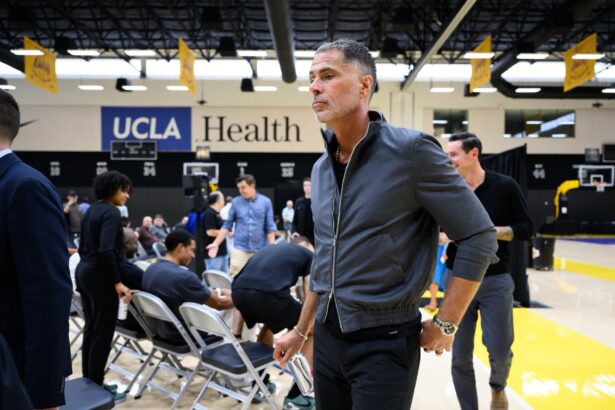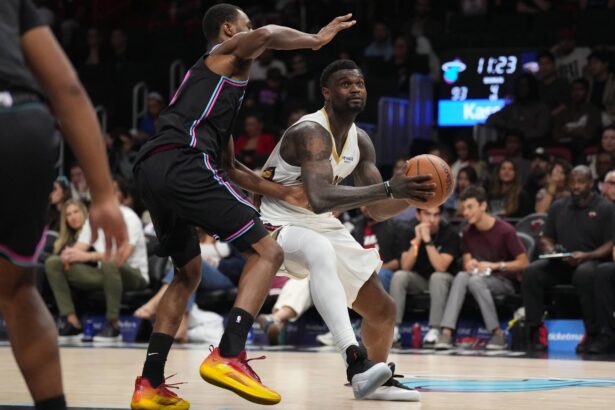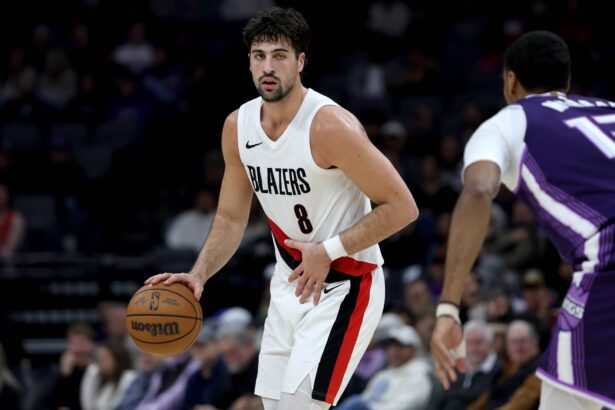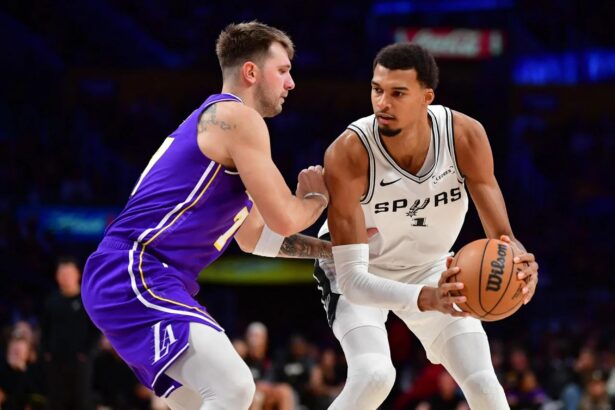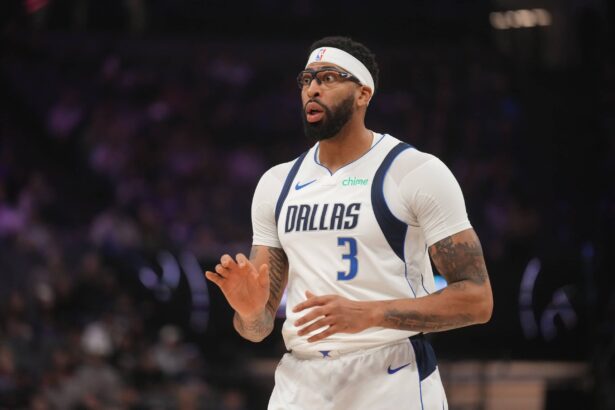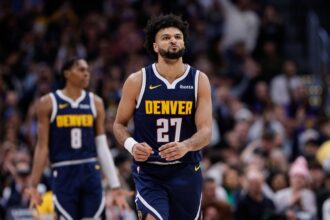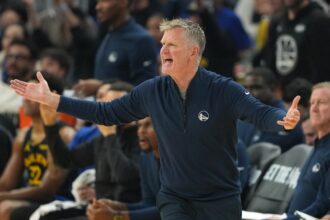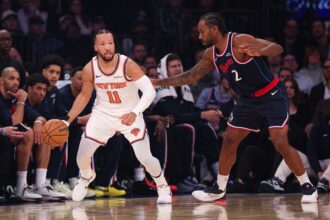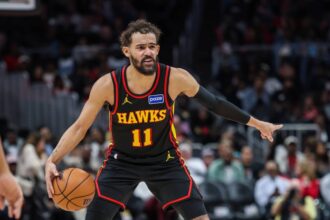- The 1986-87 MVP Race was one of the most iconic in NBA history
- Michael Jordan somehow did not win the MVP trophy despite a dominant season
- Three of the top-ten players ever came close to winning the MVP award
In the illustrious history of the NBA, certain seasons stand out as defining moments that encapsulate the essence of basketball greatness. The 1986-87 NBA campaign undeniably ranks among these iconic seasons, etching its place in the annals of basketball lore for an unforgettable MVP race that has resonated through the ages. As fans and critics look back on this pivotal year, one thing remains clear: the 1987 MVP race stands as a testament to the sheer brilliance and rivalry of basketball giants that include a host of first-ballot Hall of Famers.
- 10. Moses Malone – 9 MVP Points
- 9. Fat Lever – 11 MVP Points
- 8. Isiah Thomas – 17 MVP Points
- 7. Hakeem Olajuwon – 28 MVP Points
- 6. Charles Barkley – 113 MVP Points
- 5. Dominique Wilkins – 128 MVP Points
- 4. Kevin McHale – 254 MVP Points
- 3. Larry Bird – 271 MVP Points
- 2. Michael Jordan – 449 MVP Points
- 1. Magic Johnson – 733 MVP Points
The stakes were higher than ever during the 1986-87 season, and as the season progressed, the statistical battle between superstars escalated, and the narrative surrounding the MVP award intensified. Fans and experts found themselves divided, each passionately advocating for their favorite player’s claim to the prestigious accolade. The competition between the NBA’s greatest talents transcended mere numbers; it was a clash of personalities, styles, and legacies that sparked impassioned debates in every basketball circle.
As we take a nostalgic journey back to the golden era of basketball, the 1987 MVP race emerges as one of the greatest ever—a timeless tale that captures the essence of competition, camaraderie, and the pursuit of excellence that defines the spirit of the NBA. Here is how the 1986-87 season shaped up in terms of total MVP points earned.
10. Moses Malone – 9 MVP Points
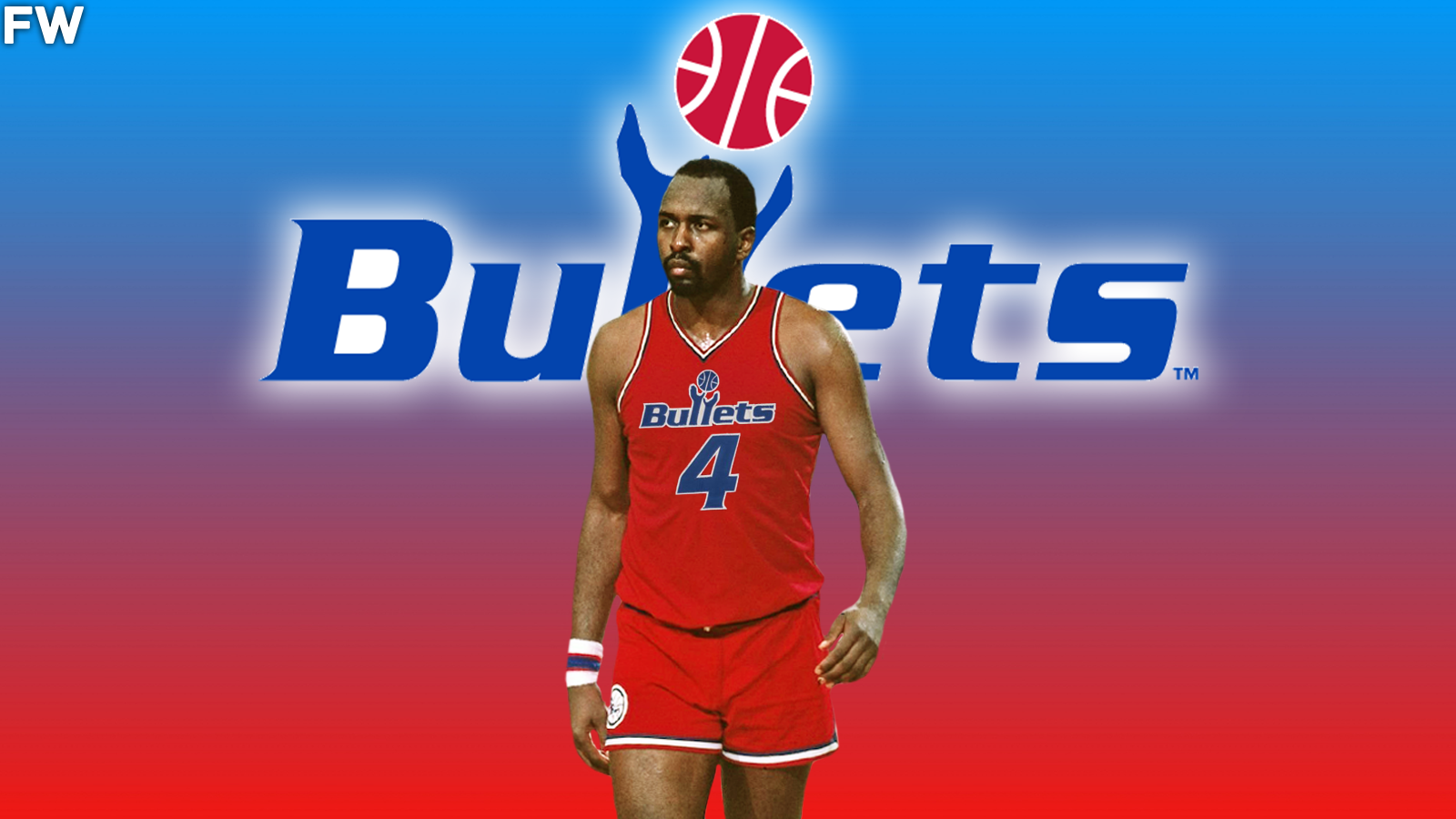
Stats: 24.1 PPG, 11.3 RPG, 1.6 APG, 0.8 SPG, 1.3 BPG
In the 1986-87 NBA season, Moses Malone showcased why he was regarded as one of the greatest centers in the history of basketball. Playing for the Washington Bullets (now known as the Washington Wizards), Malone displayed a level of skill and tenacity that continued to amaze fans and critics alike, despite being in the twilight of his illustrious career.
At the age of 31, Malone was still a dominant force in the paint. His physical presence and ability to establish a position in the low post made him a nightmare for opposing defenders. He utilized his size and strength to grab rebounds with unmatched ferocity, often securing second-chance opportunities for his team. During the year, Moses posted 24.1 PPG and 11.3 RPG. This rebounding prowess earned him the nickname “Chairman of the Boards,” and during the 1986-87 season, he finished 9th in the league.
However, despite Malone’s impressive individual performance, the Bullets did not have a standout season as a team. They finished with a modest record and failed to advance deep into the playoffs. This lack of team success likely played a role in Malone ultimately falling short in the MVP race, as the award often goes to players whose individual brilliance is complemented by team success.
9. Fat Lever – 11 MVP Points
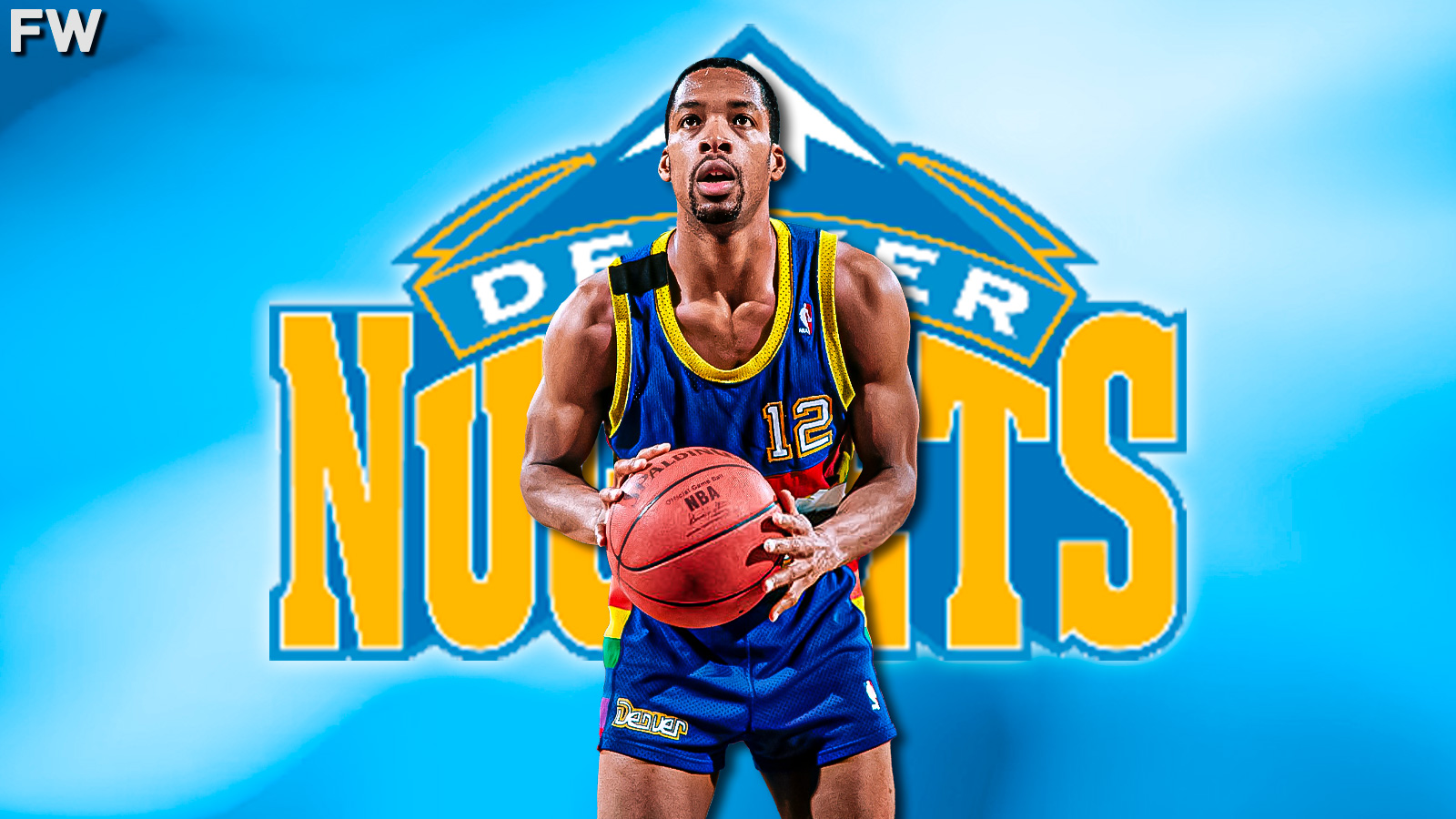
Stats: 18.9 PPG, 8.9 RPG, 8.0 APG, 2.5 SPG, 0.4 BPG
In the 1986-87 NBA season, Lafayette “Fat” Lever delivered a standout performance that solidified his status as one of the most versatile and impactful guards in the league. Playing for the Denver Nuggets, Lever showcased his remarkable skills on both ends of the court, leaving a lasting impression on fans and earning recognition as one of the top players in the NBA that year. Lever’s ability to stuff the stat sheet was nothing short of remarkable. As a point guard, he demonstrated incredible scoring, passing, and rebounding skills, earning him the reputation of a triple-double threat every time he stepped onto the court.
His scoring prowess was evident as he averaged 18.9 PPG, 8.9 RPG, and 8.0 APG in near triple-double fashion as a 6’3” point guard with tremendous all-around ability. However, it was Lever’s proficiency as a playmaker that truly set him apart. He possessed exceptional court vision and passing ability, often threading the needle with precise assists to set up his teammates for easy baskets. Lever demonstrated his capability as a floor general and key facilitator for the Nuggets’ offense.
What made Lever’s season in 1986-87 particularly remarkable was his rebounding prowess from the guard position. Standing at 6’3”, he had a knack for crashing the boards and consistently outrebounded players much taller than him. Lever averaged a staggering 8.9 RPG during that season, making him rank first in the NBA in RPG as a guard. However, similar to Malone, his team didn’t enjoy significant team success during that season. Denver only had 37 wins and was swept in the first round of the playoffs.
8. Isiah Thomas – 17 MVP Points
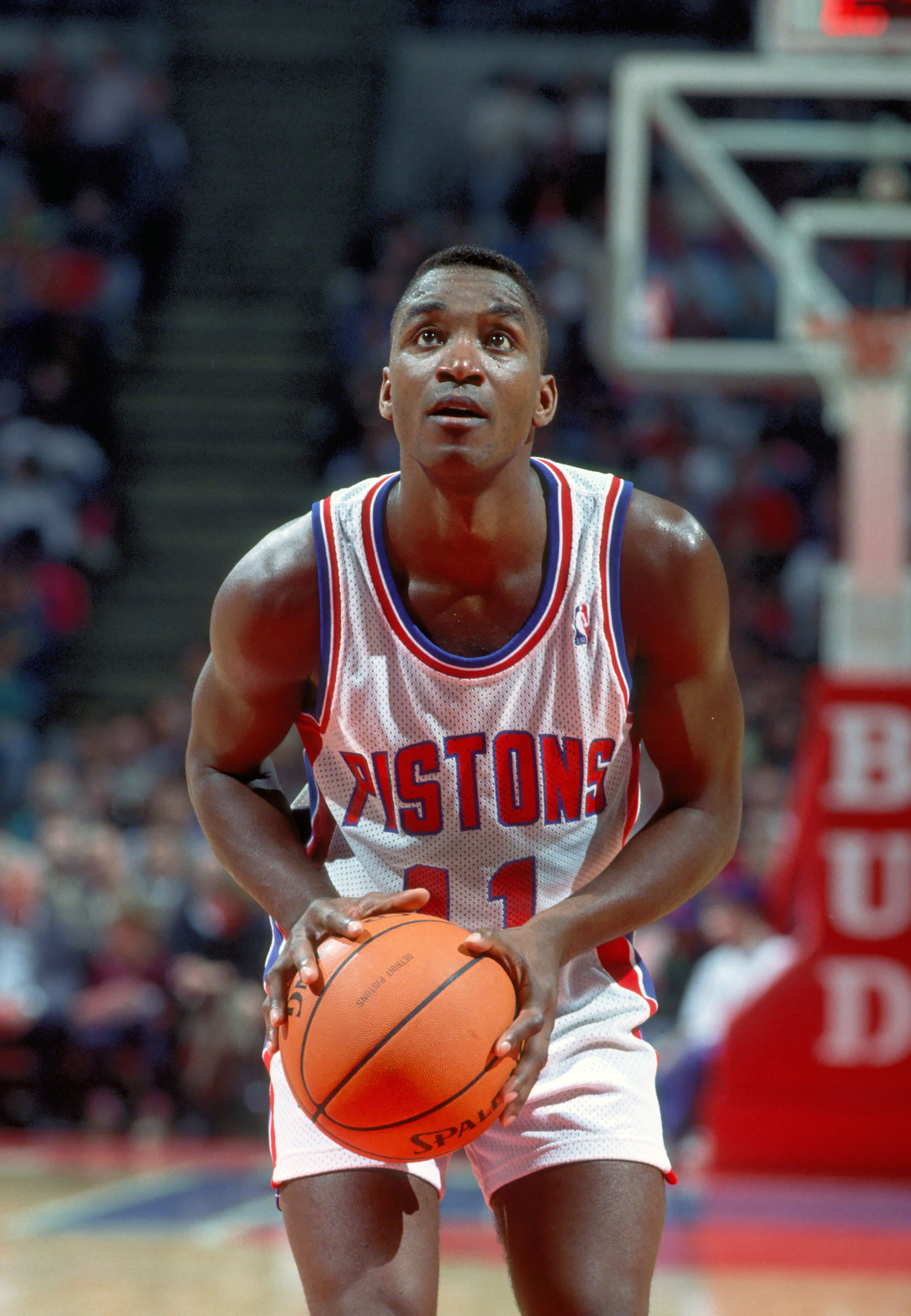
Stats: 20.6 PPG, 3.9 RPG, 10.0 APG, 1.9 SPG, 0.2 BPG
Isiah Thomas was the heart and soul of the Detroit Pistons, serving as their star point guard and a leader on the court. In the 1987 season, he put up impressive statistics, averaging 20.6 PPG, 10.0 APG, and 1.9 SPG. These numbers showcased his scoring ability, playmaking skills, and defensive prowess.
Perhaps most importantly, the Pistons had an excellent season in 1987, finishing with a 52-30 record, securing the third seed in the Eastern Conference. Thomas played a pivotal role in leading the Pistons to the Eastern Conference Finals that year, where they ultimately lost to the Boston Celtics in a tough seven-game series.
Despite not winning the award and finishing outside of the top five of the race, Isiah Thomas had a highly respectable performance in the MVP race, likely finishing among the top candidates. His impact on the Pistons’ success, along with his impressive individual statistics, undoubtedly earned him considerable recognition and respect from fans, players, and the media.
7. Hakeem Olajuwon – 28 MVP Points
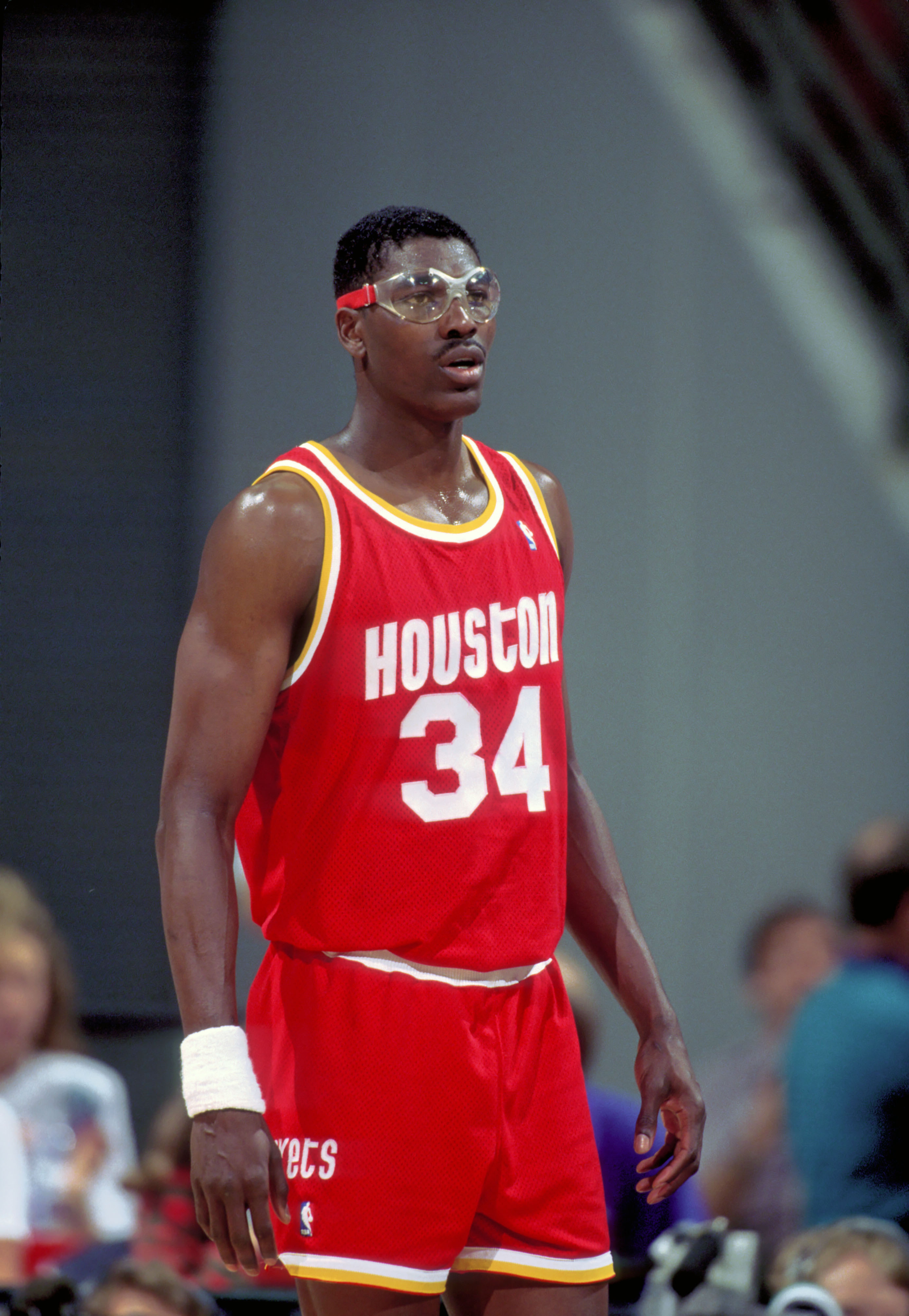
Stats: 23.4 PPG, 11.4 RPG, 2.9 APG, 1.9 SPG, 3.4 BPG
The best center in the world during the season, Hakeem Olajuwon, had a standout individual season in 1987. He was a dominant force in the paint, displaying remarkable scoring ability, rebounding prowess, and shot-blocking skills. Olajuwon averaged 23.4 PPG, 11.4 RPG, and 3.4 BPG. His presence on the defensive end was particularly noteworthy, making him one of the league’s premier shot-blockers, third behind Mark Eaton and Manute Bol.
While Hakeem’s individual performance was crucial in the MVP race, team success also played a significant role. The Rockets had a solid season in 1987, finishing with a 42-40 record and securing a playoff berth with the fifth seed. Although the team’s success was not at the level of some other MVP contenders, Olajuwon’s contributions were undeniable in helping the Rockets achieve a competitive position in the tough Western Conference.
Despite Hakeem Olajuwon’s outstanding performance during the 1986-87 season, he did not manage to crack the top-5 ranking. Hakeem Olajuwon’s presence in the MVP race highlighted his growing impact on the league and his emergence as one of the NBA’s premier centers. Over the years, he solidified his status as one of the greatest big men in basketball history and went on to win two championships with the Rockets in 1994 and 1995, but he was not ready to be the man in the NBA just yet.
6. Charles Barkley – 113 MVP Points
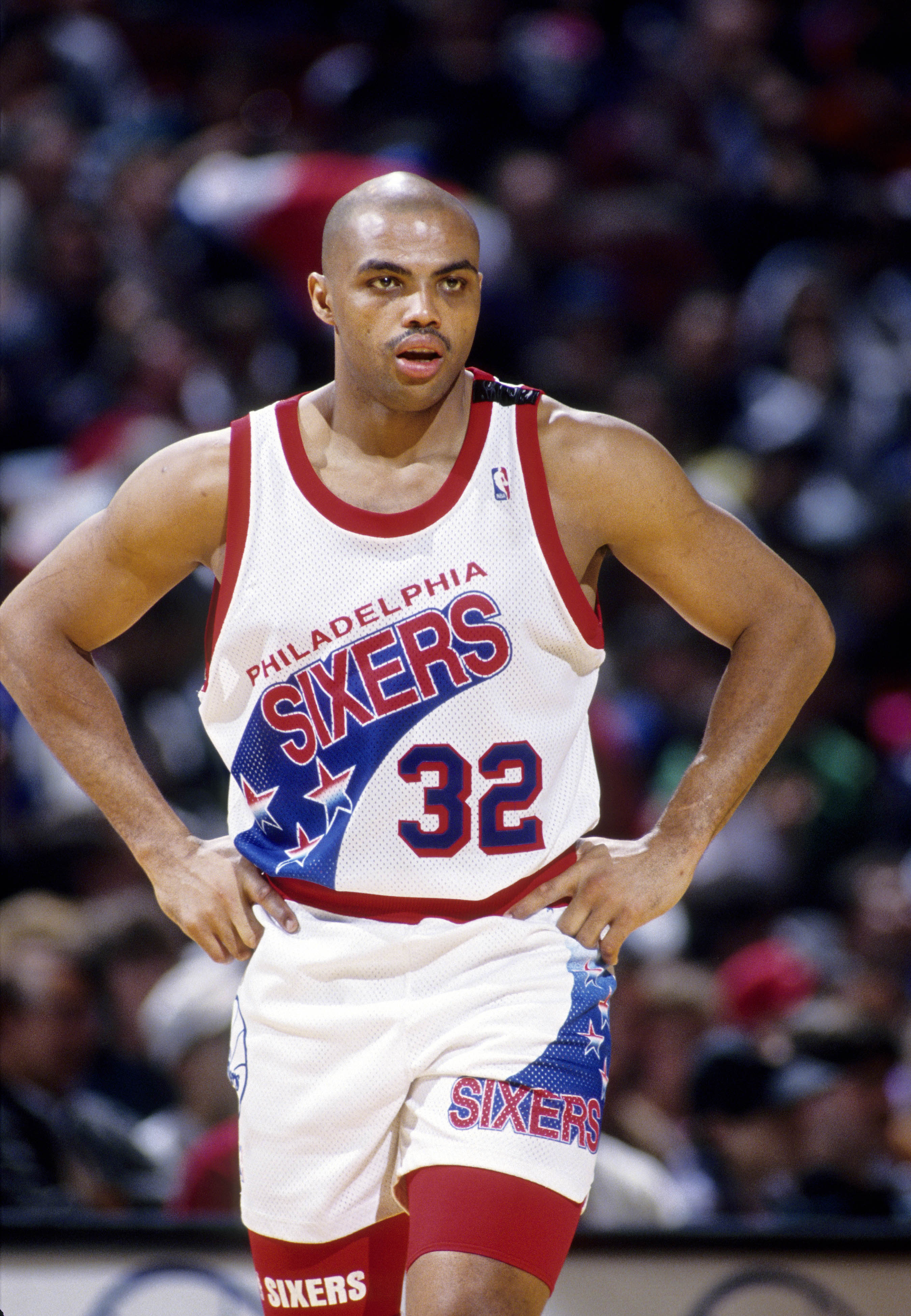
Stats: 23.0 PPG, 14.6 RPG, 4.9 APG, 1.8 SPG, 1.5 BPG
Future MVP award winner Charles Barkley was a dominant force on the court, showcasing his scoring ability, rebounding prowess, and versatility. Barkley averaged 23.0 PPG, 14.6 RPG, and 4.9 APG during the regular season. His rebounding numbers were particularly impressive, highlighting his ability to control the boards on both ends of the floor, which is why he ranked 1st in RPG ahead of players such as Charles Oakley and Buck Williams.
Standing at 6’6″ as a power forward, he was undersized compared to traditional frontcourt players, but he made up for it with his athleticism and skill set. Barkley’s ability to handle the ball and pass effectively for a big man added another dimension to his game and made him a matchup nightmare for opponents.
Barkley also led the Philadelphia 76ers had a solid campaign, finishing with a 45-37 record and securing a playoff berth. Barkley’s contributions were vital in guiding the team to a competitive position in the Eastern Conference, although the team would lose in the first round to the Milwaukee Bucks. No doubt, winning only 45 games was a major factor in Barkley not cracking the top-5 in the MVP race.
5. Dominique Wilkins – 128 MVP Points
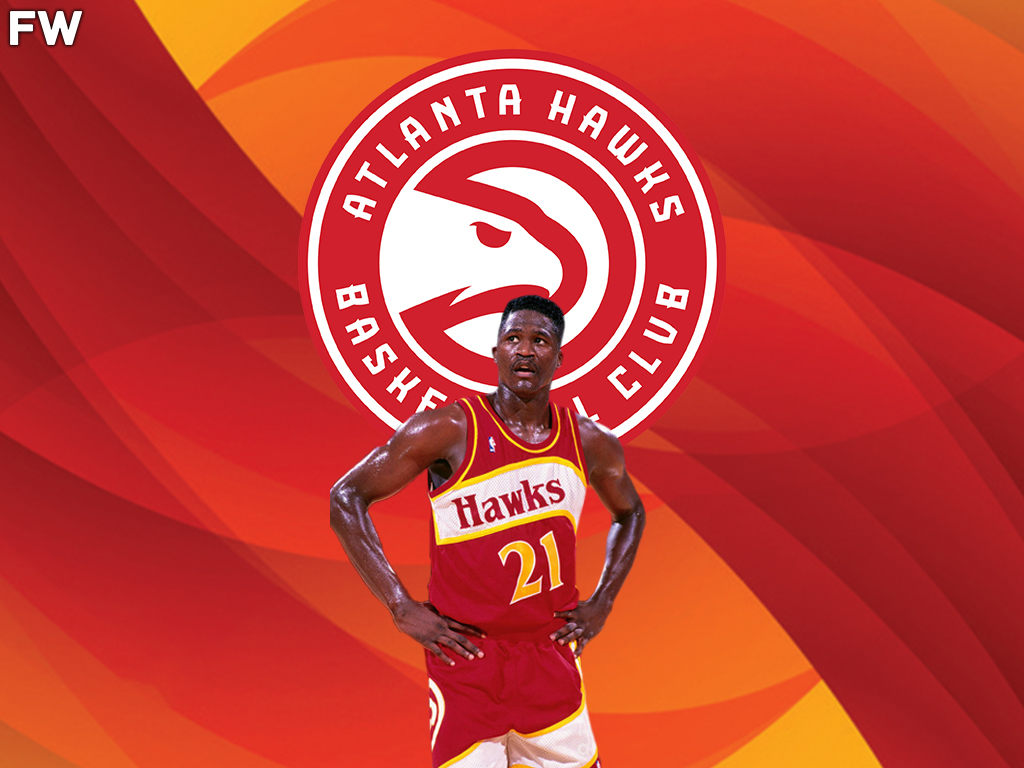
Stats: 29.0 PPG, 6.3 RPG, 3.3 APG, 1.5 SPG, 0.6 BPG
Dominique Wilkins was at his peak in terms of his scoring ability and explosive athleticism during the 1986-87 season. During the year, he had a phenomenal offensive output, averaging around 29.0 PPG, which was the second-highest scoring average in the league behind Michael Jordan. Wilkins’ ability to score from anywhere on the floor, including his acrobatic dunks, made him a thrilling player to watch and a significant offensive threat.
While Wilkins was primarily known for his scoring, he was also a capable rebounder and passer. He averaged 6.3 RPG and 3.3 APG during the season, showcasing his ability to impact the game in multiple ways, even if he was a score-first gunner. Dominique Wilkins earned his second consecutive All-Star selection and was building his status as an elite star player. These accolades reflected his status as one of the league’s premier players and emphasized his impact on the court.
While the Atlanta Hawks had a respectable season in 1987, finishing with a 57-25 record, which was the second-best in the Eastern Conference, they fell short in the playoffs, losing in the Eastern Conference Semifinals to the Detroit Pistons. Although the team’s success was notable, it may have slightly impacted Wilkins’ MVP chances compared to players on teams with better playoff performances. Still, “The Human Highlight Film” had one of his best seasons due to his jaw-dropping dunks and scoring displays.
4. Kevin McHale – 254 MVP Points
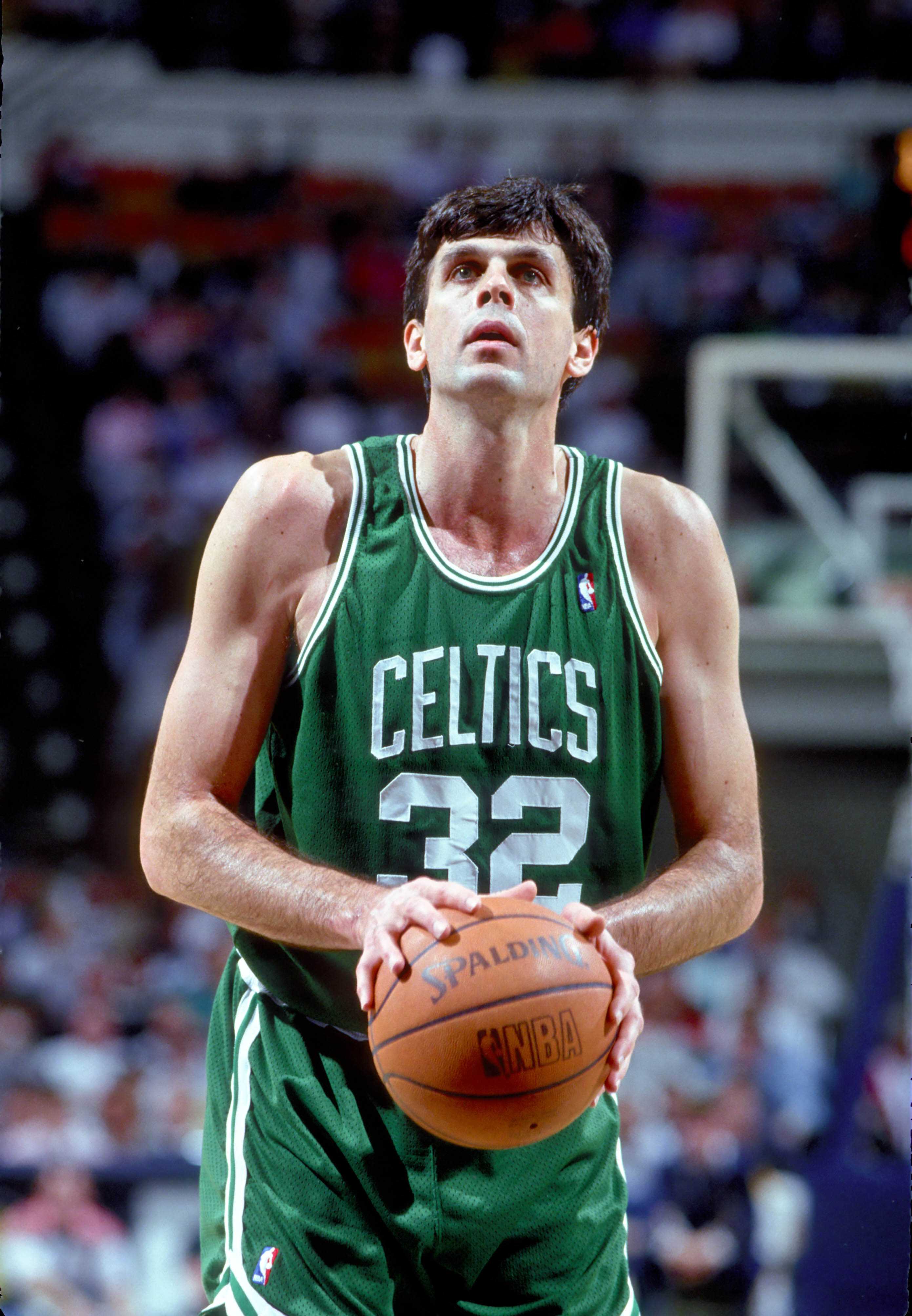
Stats: 26.1 PPG, 9.9 RPG, 2.6 APG, 0.5 SPG, 2.2 BPG
Kevin McHale was widely respected for his impeccable post moves and scoring ability in the paint, and he managed to finish 4th in the MVP race in an iconic season. In the 1986-87 season, he averaged around 26.1 PPG while shooting at an incredibly high percentage (60.4% FG), demonstrating his efficiency and scoring prowess near the basket.
McHale was also an excellent rebounder and defensive presence for the Celtics. He averaged approximately 9.9 RPG and 2.2 BPG during the 1987 season. His shot-blocking skills and ability to protect the rim were crucial to the Celtics’ defensive success because the team ranked 4th in OPPG. As usual, team success is a significant factor in MVP consideration, and the Celtics had a strong season in 1987.
They finished with a 59-23 record, securing the first seed in the Eastern Conference. McHale’s contributions were instrumental in leading the Celtics to the Eastern Conference Finals, where they faced the Detroit Pistons in a tough series. Although McHale did not win the MVP award in 1987, his remarkable season further solidified his legacy as one of the greatest power forwards in NBA history. He continued to be a vital part of the Celtics’ success in subsequent seasons and went on to win three NBA championships with the team during his career.
3. Larry Bird – 271 MVP Points
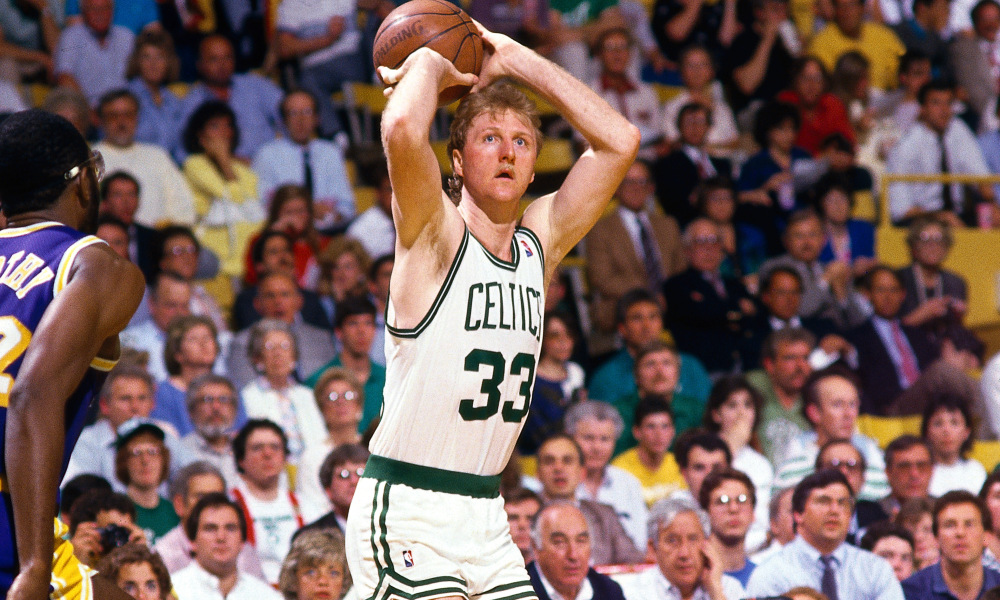
Stats: 28.1 PPG, 9.2 RPG, 7.6 APG, 1.8 SPG, 0.9 BPG
Along with Magic Johnson, Larry Bird ran the 1980s, although Michael Jordan was also up and coming. In the 1986-87 season, he averaged 28.1 PPG, 9.2 RPG, and 7.6 APG while shooting 50-40-90 from the field. Bird’s scoring ability, court vision, and playmaking skills were among the best in the league, and he was often the catalyst for the Celtics’ offense.
Beyond his impressive statistics, Bird’s leadership and intangible impact on the game were unmatched. He was known for his competitive drive and basketball IQ, which allowed him to control the flow of the game and elevate the play of his teammates. Boston finished with a league-best 59-23 record, securing the top seed in the Eastern Conference. Bird’s leadership and contributions were vital in leading the Celtics to the Eastern Conference Finals, where they faced tough competition from the Detroit Pistons.
Unfortunately for Bird and the Celtics, they would make it to the NBA Finals but would lose to the Los Angeles Lakers led by Magic Johnson. Despite this, Bird had an iconic season as his scoring output ranked third-highest in his career with only the 1988 and 1985 seasons. Even if Bird acquired the best seed in the East, Bird was still behind two first-ballot Hall of Famers in the league race.
2. Michael Jordan – 449 MVP Points
Stats: 37.1 PPG, 5.2 RPG, 4.6 APG, 2.9 SPG, 1.5 BPG
Even if Michael Jordan had one of his greatest individual seasons, he could still not win the MVP award in one of the most competitive seasons ever. Michael Jordan was known for his scoring prowess, and in the 1986-87 season, he was the league’s leading scorer, averaging 37.1 PPG which was the highest mark of his career. His scoring ability was simply unmatched, as he showcased a wide array of offensive moves, including acrobatic layups, mid-range jump shots, and powerful dunks.
Beyond his scoring, Jordan was also an excellent playmaker. He averaged 4.6 APG during the 1987 season, demonstrating his ability to create scoring opportunities for his teammates. Jordan’s offensive repertoire and ability to take over games made him one of the most dangerous offensive threats in NBA history. As dominant as Michael was as the greatest individual player, team success ultimately separated him from first place. The Bulls had a slightly below-average season in 1987, finishing with a 40-42 record and securing a playoff berth.
Michael Jordan’s 1987 MVP race was a glimpse of the greatness he would achieve in his career. While he did not win the award that season, he went on to dominate the league in the years to come, earning five regular-season MVP awards during his illustrious career and eventually becoming a six-time NBA champion. However, it took Jordan many frustrating seasons in the 1980s before getting over the hump, and losing games stopped him from winning the MVP trophy ahead of superstar point guard Magic Johnson.
1. Magic Johnson – 733 MVP Points
Stats: 23.9 PPG, 6.3 RPG, 12.2 APG, 1.7 SPG, 0.5 BPG
The only player to defeat Michael Jordan and Larry Bird in the iconic 1987 MVP Race ended up being the greatest point guard ever. Magic Johnson had an exceptional individual season in 1987. He displayed incredible versatility and skill, averaging 23.9 PPG, 6.3 RPG, and 12.2 APG, while also chipping in 1.7 SPG. Johnson’s scoring ability, court vision, and playmaking skills were among the best in the league. His performances often resulted in triple-doubles, showcasing his all-around abilities and influence on the game.
One of the key factors in MVP consideration is a player’s impact on his team’s success. In the 1986-1987 season, the Lakers had a stellar record of 65-17, finishing as the top seed in the Western Conference. Johnson was the leader of the Lakers and instrumental in their dominant regular-season performance. He led the team in scoring and assists, and his leadership was evident in the team’s cohesion and success.
Ultimately, Magic Johnson won the MVP award for the 1986-1987 season, his third MVP title in his career. His exceptional individual numbers, coupled with his leadership in guiding the Lakers to the best record in the league, were decisive in securing the award. Magic’s ability to elevate his teammates’ performances and control the game’s tempo made him a standout candidate for the MVP honor. To further add to Magic’s incredible season, the point guard led the Lakers to the NBA Finals, where they defeated the Boston Celtics in six games.

